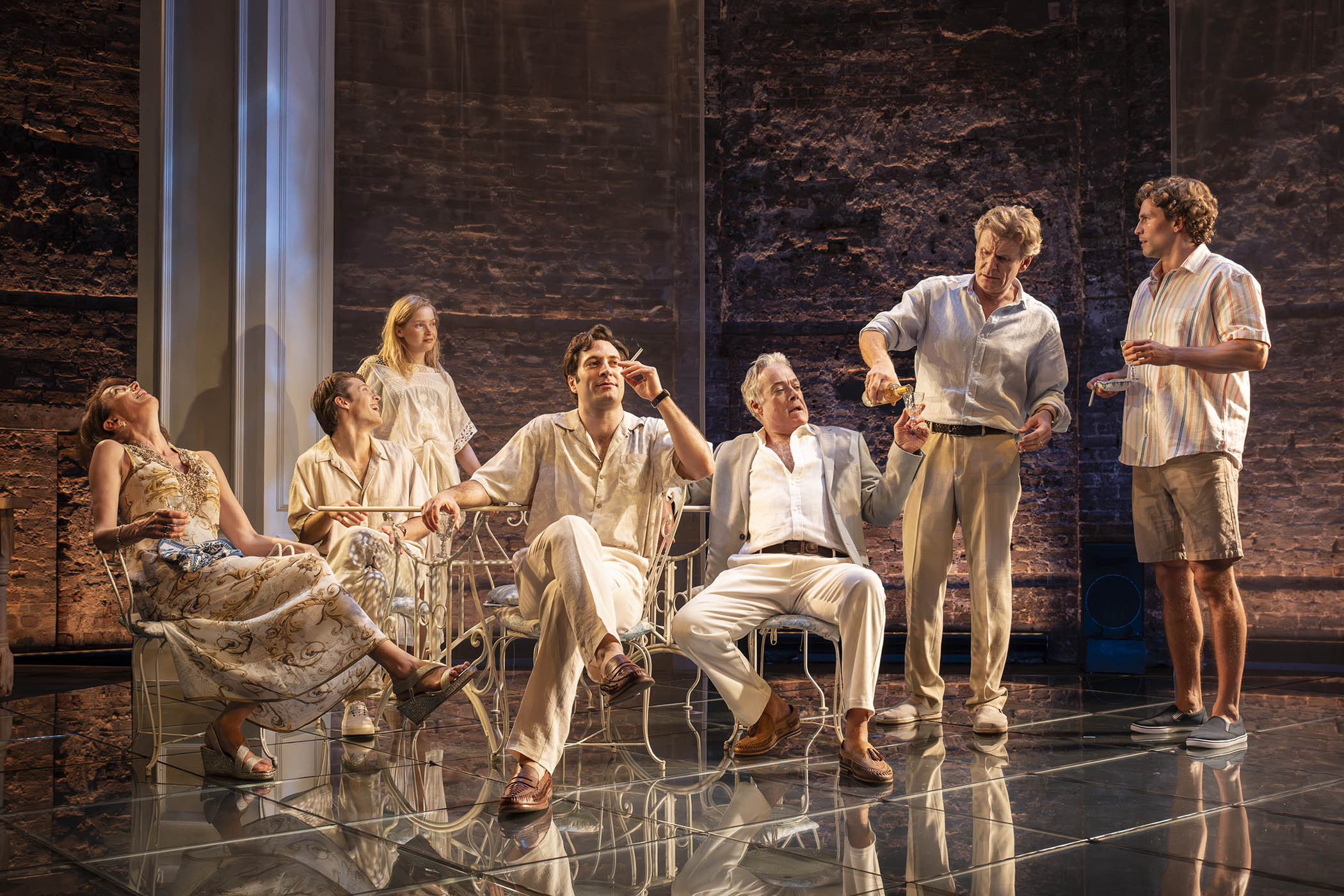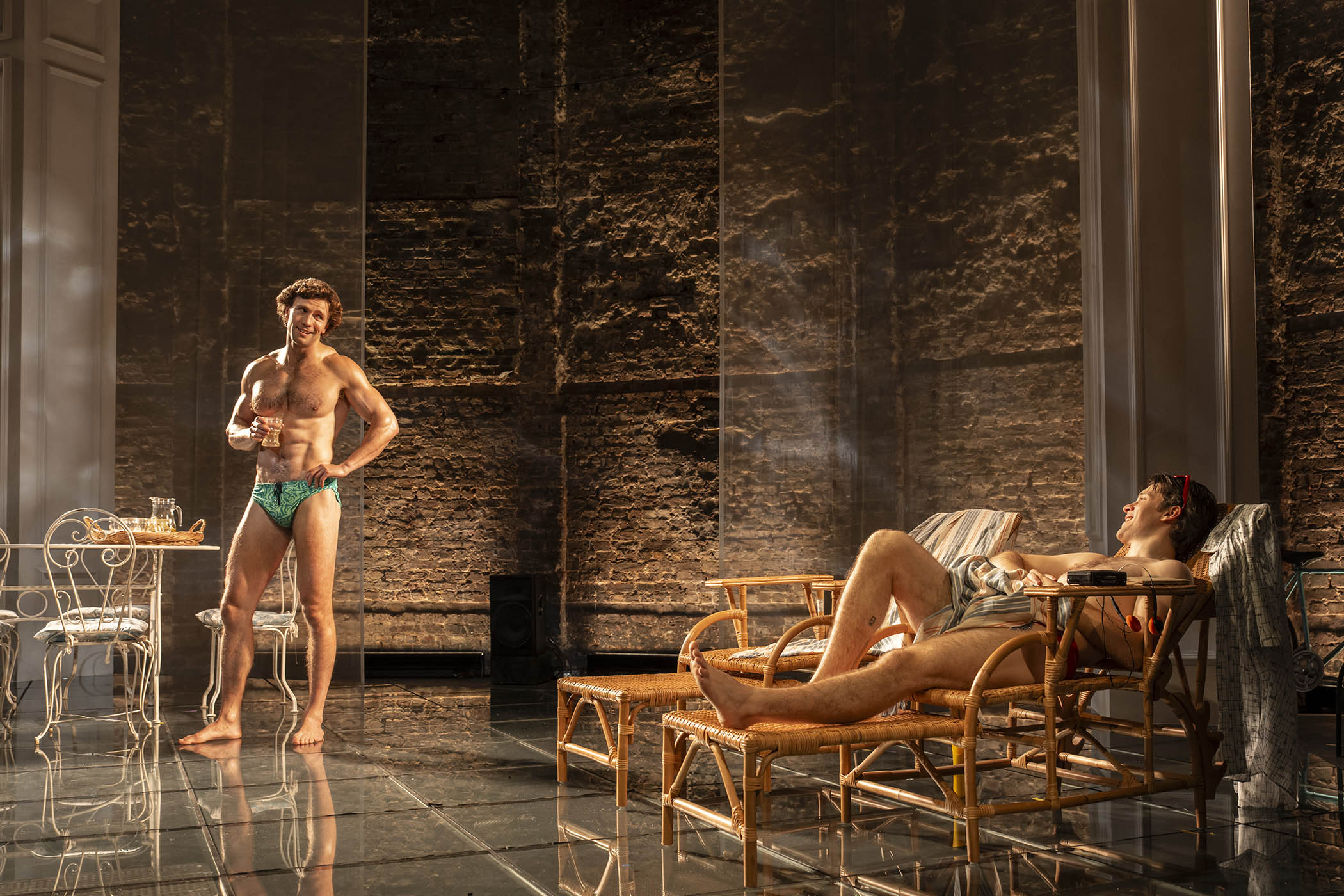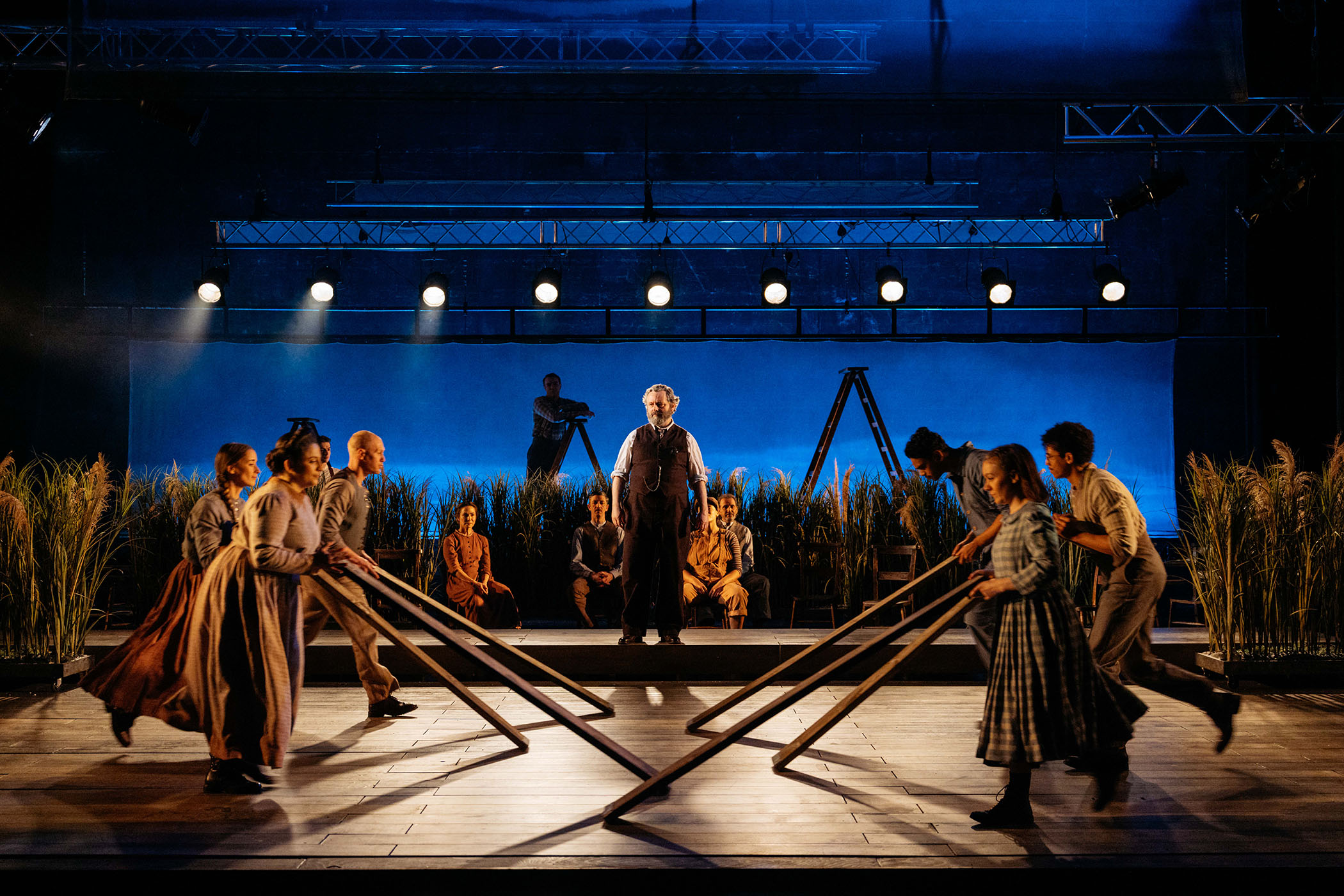The line of beauty is neither straight nor strong: slinky, serpentine, it is the shallow S-shape, Hogarth suggested, that best leads the eye in a pleasing kind of chase. In architecture, it is decorative, not structural, though it has a fundamental role in Alan Hollinghurst’s novel, where it appears in many forms: in the arch of building, the art and the furniture; in an imperfect line of coke; and the “dip and swell” of a naked man’s back as he lies prone. Perhaps, even, in the curve of a raised eyebrow, of which the novel provoked a few when it was published more than 20 years ago. Now we consider a new form: lines of beauty, delivered on stage in all their lively glory.
Hollinghurst’s Booker prize-winning book was hailed as the “great gay novel”, and this is very nearly a great gay play. Through the eyes of Nick Guest, an Oxford graduate living with a ruling-class family, it explores 1980s queer culture and class division in Thatcher’s Britain, morality and self-delusion. The beloved book merited careful handling by an elite team, so one was assembled: adaptation by Jack Holden (whose debut play, Cruise, about the Aids crisis, was nominated for an Olivier) with the involvement of Hollinghurst, and direction by Michael Grandage, who, born the same year as Nick, witnessed the epidemic first-hand.
There is an elite cast too, several public schoolboy-types among them, who both are and look the part – not such a trivial detail, given all that hinges on the importance of being gorgeous – as they seduce Nick and the audience with their world of sex, drugs and Rachmaninov. But it is all cigarette smoke and mirrors: Christopher Oram’s simple, elegant set, the classical pillars of a Kensington townhouse against a backdrop of the Almeida’s crumbling brickwork, hints at decrepitude to come.
It is to this townhouse that Nick (Jasper Talbot) arrives as a wide-eyed aesthete and horny Henry James scholar, his few-weeks’ stay turning into four years. He is an Oxford friend of Toby Fedden (Leo Suter), whose asset-rich parents, Tory MP Gerald (Charles Edwards) and Rachel (Claudia Harrison), spy his potential value: he can “Cat sit” their manic depressive daughter Catherine, played by a puerile, glowering Ellie Bamber. She becomes a fabulous if flaky ally from the moment she asks: “Are you a poof?” – and, if so, can he take her to dance at Heaven?

The cast of The Line of Beauty at the Almeida. Main image: Leo Suter, who ‘provided the most jaw-dropping moment of the evening’, alongside Jasper Talbot as Nick Guest
The 80s were a good time to be a Tory behaving badly, but not necessarily a gay man, living flamboyantly, yet in the shadows, the threat of Aids encroaching. Nick drifts aimlessly but for the pursuit of one thing – beauty – and finds it in men: a black, working-class boyfriend Leo (Alistair Nwachukwu, keener, sweeter than the wry enigma of the book); closeted coke fiend Wani (a mad-eyed Arty Froushan, truly a “parody of a good-looking person”); and still-straight Toby, next to whom Nick literally pales in comparison: surely Hollinghurst would approve when I say Suter, tanned and oiled up, provided the most jaw-dropping moment of the evening just by taking his shirt off. Talbot, soft-faced and bookish, is sympathetic as Nick, but it is Bamber who really endears: shimmering, small hands twitching, she is either up or down, dancing to New Order or raging at her father. “I’m pure feeling,” she worries. “Nobody should be pure feeling.”
Where Hollinghurst’s novel tends towards the atmospheric, Holden’s script is heavily thematic. Reflections on beauty and ethics do not land so delicately without the cushion of prose. Many of the funniest lines are straight lifts – their sparkling wit losing none of its lustre in Grandage’s sharp pacing – but the register is more one-note, missing those hilarious shifts from formality to filth, that difficult earnestness-to-erection ratio. Indeed, it is, at times, a coy, curtailed affair, with a sense of the party being over too soon. This is the greedy, exhibitionist 80s: there is bust, not enough boom. Even the famous Thatcher cameo – when the prime minister dances at the Feddens’ anniversary party – is cut off before she can so much as shake a shoulder pad. The lady’s not for twerking, I suppose.
Plus, there are only two sex scenes and one is interrupted, in this telling, by the arrival of Leo’s sister, informing Nick of his death. Aids was always in the room – but not so baldly as this. It is a jarring revision that risks undermining the novel’s central question: was it worth it, the pursuit of lust and beauty? Here, the answer is plain and unforgiving.
What unadulterated highs there are lead swiftly, inevitably to lows, Nick having given up Leo for the conditional love of a hypocritical family and Wani’s aquiline nose. A dark stain seeps through the veneer of this corrupting fantasy – or was it there, under the surface, all along? On stage, any hint of seediness is all but covered by the gloss; all callousness disguised as studied, sexy indifference.
It is a pitiless world and, when all is lost, you wonder if Nick knows how, even, to pity himself. We leave him, a martyr for his hollow cause, standing in the crisp, white light that blinded him – the “gleaming sense of occasion”, a thrill that only lasts so long. But there, on Nick’s cheek, the track of a teardrop glistens – a line of beauty, of pure feeling, neither straight nor strong.
The Line of Beauty is at the Almeida, London, until 29 November
Photographs by Johan Persson
Newsletters
Choose the newsletters you want to receive
View more
For information about how The Observer protects your data, read our Privacy Policy



